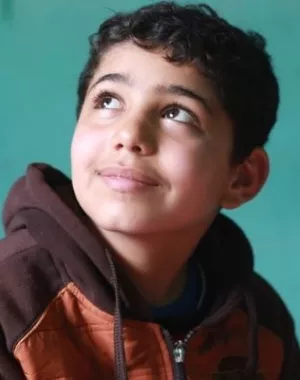Overview
In 2019 War Child supported 100,217 children, young people and adults in 8 different contexts: Afghanistan, Iraq, Yemen, Jordan (Syrian response), the occupied Palestinian territories, Uganda, Democratic Republic of Congo, and Central African Republic. These are some of the most challenging conflict affected countries in the world, where violence and displacement have created severe vulnerabilities for children and where our work carries significant risk to our staff.
War Child is increasingly seen as a reliable partner which can deliver good quality child protection in difficult locations. We saw a significant increase in the funding we were able to secure from major humanitarian donors like the United Nations High Commissioner for Refugees (UNHCR), the United Nations Children’s Fund (UNICEF), and the United Nations Office for the Coordination of Humanitarian Affairs (OCHA) which allowed us to expand our work into new areas of Afghanistan, Yemen, Iraq, Democratic Republic of Congo (DRC) and Central African Republic (CAR). In Afghanistan, our research into the experience of children trafficked to Iran demonstrated that we need to go beyond reunifying trafficked children with their families and get to the root causes of the trafficking in the areas the children are coming from. In Iraq, we developed new programmes in Sinjar and in Mosul in response to displaced families’ fears that they would not feel safe leaving the displacement camps unless War Child was able to provide child protection and education support in the towns they would be returning to. We have also supported young people to influence how the aid system itself is working for them. In Uganda, our VoiceMore group of young advocates conducted research in displaced communities and uncovered hidden vulnerabilities of orphaned children who had not shown up in official lists of people in need of assistance. They secured a huge expansion of assistance to these children by showing the local authorities that they had missed a major group of vulnerable beneficiaries.
We believe that the protection and education work we do with children and their families has long term benefits for peace development. In 2019 we began working on several partnerships which join our protection, education and livelihoods methodologies to groups who can provide community reconciliation and peacebuilding programmes and build on the personal security encouraged by our work. This will become a major theme for us in the next few years as we seek to become a thought leader in the reintegration of communities scattered by conflict. We continue to have a high profile in this area at the United Nations and in other fora where governments and civil society meet to agree how to reduce conflict in developing countries and secure peaceful futures for this generation of young people.
Whilst big governmental and United Nations donors are enabling us to increase the footprint of our work, the unrestricted funding we raise from members of the public and from private companies and foundations is the key to the groundbreaking work we are able to do on reintegration, on supporting the voices of young people, on responding rapidly to new emergencies and in developing new answers to the challenges children face in conflict settings. Unrestricted funding has allowed us to invest in the rapid improvement of our systems and processes to ensure that every penny is spent wisely and that we are able to maintain high standards of accountability and transparency. We are also investing significant unrestricted funding into making sure that children in our programmes are safeguarded, and that our activities happen within a closely managed security framework. In 2019 we were delighted to have the support of four amazing Global Ambassadors, a wide range of talented people in the music, games, and entertainment industries, a huge number of private individuals and some key philanthropic donors. We are so grateful to all these people for their support which makes all this work possible.
We will need this support more than ever in 2020. As we publish this report for 2019 our country teams are already responding to the 2020 global Coronavirus pandemic by adapting programmes to educate children and families about the virus and to provide them with the sanitary and hygiene kits they need to avoid infection. We are switching to home-based schooling in countries where schools are closed, and our pyschosocial counselling is moving onto phone and social media applications to ensure we can still reach traumatised children and families even under social isolation.
Download the report to read more.

